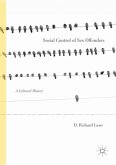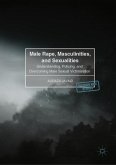This book offers a comprehensive framework for the study of moral panics. It provides an up-to-date overview of the history and development of the concept of panic, and discusses the key criticisms and debates that have stemmed from its use over the last four decades. While investigating the critical connections between crime reporting and panic development, Wright Monod also highlights the overall importance of social context, and social theory, for understanding episodes of moral panic.
Two case studies - one on murdering teens, and the other on gangs and guns - are explored to demonstrate the efficacy of the framework, and five research phases for panic study are extensively analysed. Drawing on the nature of sensationalist media coverage, and considering the impact of new media ecosystems in panic development, this innovative study considers the shape of the field of moral panic scholarship today and, crucially, the directions in which its study is heading. This is an
informed and original book which will appeal to scholars of risk, deviance, and criminal justice.
Two case studies - one on murdering teens, and the other on gangs and guns - are explored to demonstrate the efficacy of the framework, and five research phases for panic study are extensively analysed. Drawing on the nature of sensationalist media coverage, and considering the impact of new media ecosystems in panic development, this innovative study considers the shape of the field of moral panic scholarship today and, crucially, the directions in which its study is heading. This is an
informed and original book which will appeal to scholars of risk, deviance, and criminal justice.








